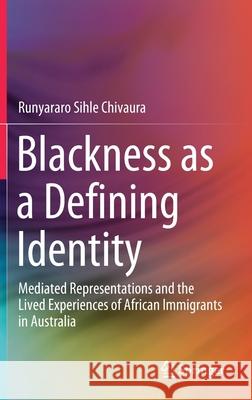Blackness as a Defining Identity: Mediated Representations and the Lived Experiences of African Immigrants in Australia » książka
topmenu
Blackness as a Defining Identity: Mediated Representations and the Lived Experiences of African Immigrants in Australia
ISBN-13: 9789813295421 / Angielski / Twarda / 2019 / 181 str.
Blackness as a Defining Identity: Mediated Representations and the Lived Experiences of African Immigrants in Australia
ISBN-13: 9789813295421 / Angielski / Twarda / 2019 / 181 str.
cena 191,85 zł
(netto: 182,71 VAT: 5%)
Najniższa cena z 30 dni: 191,40 zł
(netto: 182,71 VAT: 5%)
Najniższa cena z 30 dni: 191,40 zł
Termin realizacji zamówienia:
ok. 20 dni roboczych.
ok. 20 dni roboczych.
Darmowa dostawa!
Kategorie:
Kategorie BISAC:
Wydawca:
Springer
Język:
Angielski
ISBN-13:
9789813295421
Rok wydania:
2019
Wydanie:
2020
Ilość stron:
181
Waga:
0.46 kg
Wymiary:
23.39 x 15.6 x 1.27
Oprawa:
Twarda
Wolumenów:
01
Dodatkowe informacje:
Wydanie ilustrowane











